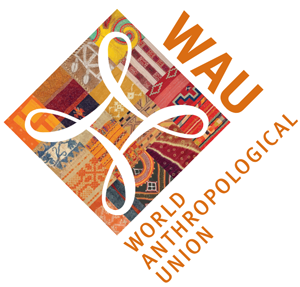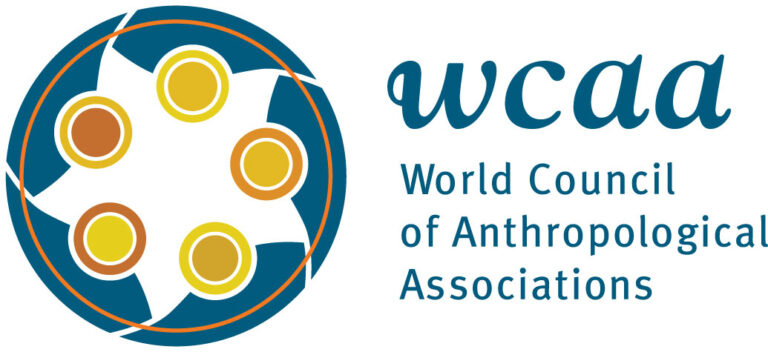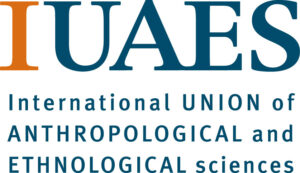Questions for Journal Editors for the Tenth Anniversary of Deja Lu
Questions for Journal Editors, Anthropology Southern Africa
Interview by Joy Owen, with Teresa Connor, editor
14 February 2022
JO: Tell us about the journal you edit
TC: Anthropology Southern Africa is a journal that publishes anthropological work – by a variety of authors from different disciplines – about southern Africa, but also about African issues in general, as long as they have an ethnographic-like focus. Most of our articles are based on data generated from in-depth ethnographic fieldwork, but we also invite articles that focus on anthropological theory and methodology. We also focus on developing young and upcoming authors and editors, and make sure that we are representative of the different countries, nationalities, genders, and races that make up our subcontinent.
JO: Who publishes in your journal? Of what national origin? Who are your authors typically? What are the language options for your authors publishing with you?
TC: We publish in English, although our abstracts are translated into Portuguese as well to build closer links with Lusophone African anthropology, particularly in Angola and Mozambique. We publish a wide variety of authors – many from different African countries as well as from overseas. Currently we publish only in English. We aspire to publish in other African languages, but currently do not have the financial and administrative resources necessary for this.
JO: Can international authors publish in your journal?
TC: Yes. In fact, our journal is by definition an international journal and our authors are specialists in African studies, whether they are physically located on the continent or whether they work from institutions further afield in North America, Europe or Asia.
JO: What topics define your journal? Do you encourage your authors to deal with national topics? Regional topics? Global topics? What is your particular focus?
TC: African studies, ethnography, anthropology, history, or geography – the inclusion is wide, but we offer ethnographic-style insights into pertinent African issues. Intellectually rigorous. Reflexive. Relevant. The pertinent issues are illustrated in particular through special issues. A recent issue on essentialism has made a strong southern Africa-based contribution to the world-wide examination of the rise in essentialist understandings around the world – and makes a solid intervention against it, showing how essentialist feelings reduce and destroy humanity and a shared world. The use of the urban in everyday relationships features strongly in a previous special issue on secret affinities, examining for example how gay men used Johannesburg in the 1970s and 1980s to create communities and evade the police and apartheid regulations; or migrants using high-rise downtown buildings to further their businesses but evade police overreach. Another special issue on tuberculosis examined care within families and the interaction between families and health care services. And a special issue on human-plant interfaces examines how humans learn from nature and proposes exciting and challenging new understandings of fieldwork, useful to think with when engaging with the environmental problems of the twenty-first century. This illustrates just a few of the fascinating papers our authors bring to our pages.
JO: What is the editorial process like? Who carries it out? Do you have an institution that shelters you? Who finances your journal? How many people make up the editorial team? Does anyone receive a salary for that job?
TC: The journal is owned by Anthropology Southern Africa and is published by Taylor & Francis. Both the association and T&F support and finance our journal, with page fees and membership fees making up the majority of our financial standing. The association provides us with a part-time editorial assistant who assists the editorial collective with the administration of the journal; and T&F pays for a copy-editor who manages the publication process of all contributions. We currently have four editors: two full editors, one junior editor and one book review editor. Editors serve a three-year period, and we add new editors on an annual rotating basis. Our team is complimented by a translator who translates the abstracts into Portuguese. At the moment, the team is made up of women, which we enjoy. We meet virtually about once every two months and get around to doing the work very easily. We have a solid team. Working together has given us the ability to carry research and maternity leaves when such situations have arisen during an editor’s tenure.
JO: What criteria do you have to accept an article? Do you have a referee system for your journal? How does it work? How do you locate referees? What societies do your referees tend to come from?
TC: A submission has to be relevant to anthropology and ethnography in the sub-continent. We watch out that it is marked by ethical and intellectual rigor. We also accept manuscripts by young authors and often take them through an editing process before it is sent out for review, to make sure that it has the best chance of success. Manuscripts are allocated to one editor on a rotational basis. In this manner we try to limit the possibility of editors being able to use their position to act as gate-keepers for what is published within certain sub-fields in anthropology. Manuscripts of research articles undergo a double-blind review process and are reviewed by a minimum of two external reviewers. If the two reviewers submit differing evaluations on the submission, we solicit a third review to assist the editor with making the final decision. Other types of manuscripts, like book reviews, photo essays, commentaries, do not undergo the review process and the editor in charge will make the final decision, often with input from the other journal editors. Our reviewers are usually anthropologists or have an anthropological bent – we usually source them based on personal knowledge of the field. We often draw on the expertise and networks of our co-editors. If we get stuck, we might also draw on our board members for suggestions. Our commitment on research papers is a turn-around time of three months. It is a tight period, since ushering a paper through the review process is not easy. Finding reviewers and reminding them to submit their reviews on time can be tricky; sometimes we have to approach six people to have one person agree to review. This can be frustrating – but most of us are in teaching positions and know the pressures that academics are under with our research and teaching responsibilities. However, those reviewers who do accept are not only reliable with submitting their reviews or letting us know if they are falling behind, but also with providing our authors with detailed and carefully considered critiques and comments. In our collective experience we have only had about two unusable reviews since 2014 when the journal moved to Taylor & Francis. The worst is, however, if we fall behind with our work – and with Covid-19 this has unfortunately happened with two papers. Several of us caught the illness or had close relatives affected by it; many had colleagues fall out and had to take on more work in their departments; and this extra care elsewhere took its toll on the journal. It is difficult for us to know that authors were inconvenienced in this way and when it happened, we sincerely apologized to the authors and offered them the chance to withdraw their papers: we do not want them to feel forced to stay with a journal they feel they could not trust. We were very relieved to report that these two authors decided to remain with us, and their papers have successfully undergone or are currently undergoing the review process.
JO: It’s often said that there is an Anglo-American core of journals that dominates global anthropological publication, in terms of theories that need to be cited. Does that have any impact on your journal? Do you try to encourage local theorization, or do you not feel the need to do that?
TC: Our Anglo-American reviewers and authors are part of the journal and our editing process, and they will always feature. But they do not make up the majority of our papers or reviewers. We make a point of including at least one African reviewer in each submission. But many African scholars have international links or are even located in European, Asian or North-American departments, and vice versa. We are all connected in some way.
In our experience, our authors develop theories from the local and draw on theories developed elsewhere on the basis of whether they are applicable and fruitful. I think only once in the past eight years has a reviewer queried a submission for having a theoretical lens that was too Northern.
JO: What are the biggest problems that you face as a journal editor?
TC: One significant challenge is the lack of response from people we invite to review a submission, a situation that has been quite pointed with the Covid pandemic. We do appreciate that people are busy, and that online teaching has put enormous additional demands on academics. We would like to encourage everyone who we approach for a review not to forget that a review is a really enjoyable and rigorous process that can “make your day.” It contributes to the author’s and the reviewer’s learning and engagement. It expands their knowledge about what is happening in the field. Their considered critique can be the decisive factor why a young and upcoming author will make it – or not. Our reviewers are important to us – we spend a long time searching for the right person for a particular submission and reading up on their research interests and publications. We do our best to ensure that there is a big overlap between the reviewer’s own work and the submission. In other words, the fact that we choose a reviewer speaks to their content and visibility in publishing their own work – our invitation to review is a compliment to their quality! And perhaps to clarify a suspicion we have seen crop up amongst academics, we do not just choose a reviewer because their name was thrown out by the algorithm on our T&F submission system. Indeed, the names that the algorithm suggests are hardly ever applicable. Each and every reviewer is hand-picked!
Our interaction with authors is a challenging task for editors. We are all authors and know the hope that we invest when submitting a paper and how difficult it is to wait for the outcome from the review process. As editors now, we are on the other side of this coin, and we need to manage all the threads that go into processing a paper through the review process, through revisions, and into publication. Our editorial assistant is always available to answer queries from authors on the progress of their paper – and we know how important this is. We have a few teething problems with a new submission system T&F introduced last year which disrupts this direct communication with authors: author queries submitted there go to some anonymous office in the company rather than to us. We are working to have this direct link re-established. For authors, in particular young and upcoming ones, receiving the decision emails with the reviews can be a difficult process. Reading critiques can feel like having their work torn apart. But from our experience, we can assure authors that reviewers take the reviews very seriously and put great consideration into evaluating the papers and writing their comments. Part of our task is to help in particular young authors understand that reading and taking on a review is the next step in the scholarly debate – where the author gets detailed, considered feedback on their arguments. A review is a mirror to see whether the paper’s argument comes across as intended or not. A review does not mean an author has to take on what the reviewer says; rather, a review is an opportunity to engage with how someone else views one’s argument and to consider whether and why it is applicable or not or to what extent. Covid has led to a situation last year where several authors were unable to do the required revisions to their reviewed papers to bring them to publication, to our great chagrin and concern. We do hope that this will improve again once the pandemic eases up and academic life can go back to in-person classes. Authors do deserve the time to invest in revising their papers and to earn a publication.
JO: Anything else you’d like to share about your journal?
TC: We are a youngish journal, and we like to encourage neophyte authors who can bring fresh and insightful ideas and intriguing ethnography to the fore. We do not want to sacrifice quality for content – and we are open to rigorous and engaging work and response by a variety of scholars. We encourage anthropologists to publish with us, in particular young scholars. Our articles are featured on our T&F site: https://www.tandfonline.com/journals/rasa20. One of our next tasks is to renew our pages on the ASNA association webpage (https://www.asnahome.org/asa) to make it much more interactive and attractive. Critical to this is expanding our presence on social media, a step we have initiated but want to take much further.



